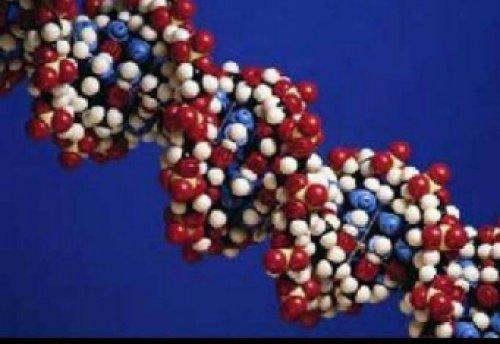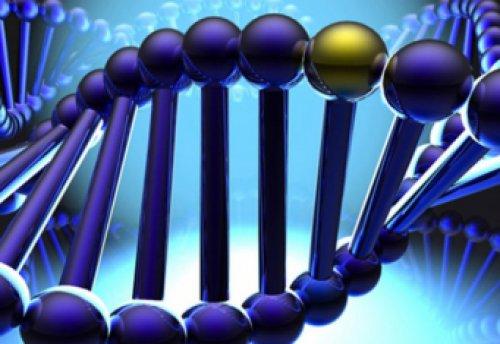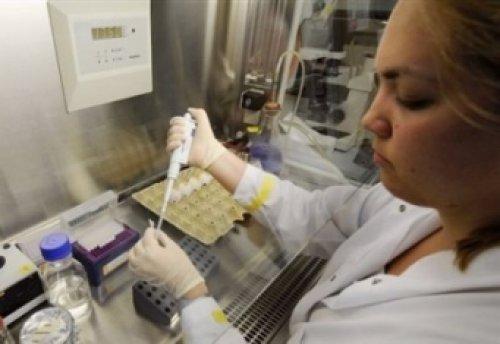909
Hereditary completeness and cheerfulness are interconnected?

Currently, the world pays great attention to medicine, as the health of the population - a priority issue in any country. Human health depends on many factors: 25% of the environment, the same amount of heredity, 35% of the way of life and 15 - from the quality of care.

The gene FTO.
Despite the great advances in science, now the big problem is that many of the known diseases are determined by genotype, that is dependent on heredity and genes. Of course, the environment, unhealthy lifestyle, medical care also play a significant role. But unlike that heredity difficult to change and control.

Consider in more detail is a common disease like obesity. Obesity affects a significant portion of the world's population. Improper diet, smoking, lack of exercise - all contributing factors in the development of overweight. Important role in this play and heredity. Today, scientists around the world found that there is a gene responsible for the completeness, and this - the gene FTO. This gene is in the body of any person, but in different states. If it mutates, i.e. changes, the possible increase of weight. This gene is associated with fat mass, and it is located on chromosome 16. At the moment his appointment is not clear and requires thorough research.


Heredity, obesity, emotional sphere - all of this is interconnected. According to the latest research, FTO gene is involved not only in the formation of adipose tissue, it also directly related to the emotional sphere, ie the brain. Many people believe that the fuller person, so it is kind and cheerful. And it's really kind of true. The fact is that the gene in question is directly linked with the psyche. If you change its structure changes and the emotional sphere of man. Scientists were able to determine that full people the risk of depression is much lower than normal. But many ordinary people think otherwise, because the fullness is always perceived criticism from the environment, and that if there is nothing good. It turns out there is. Fat people do more emotionally stable. In addition, the dependence of the gene and cheerfulness also depends on the race: the least prone to stress and depression Africans, rather than, say, Europeans or East race. Prevalence in the European nation of such changes in the genotype is about 50%, which is very, very much. Thus, almost every second person is prone to obesity. But despite all this, we must remember that genetics can also be adjusted, for example, a way of life. To avoid excess weight, you need to be active, eat right, move more, exercise and sports, all of this at times will reduce the risk of being overweight. Therefore, the extra weight - it is not a sentence.
It is important to note that the tendency to increase appetite is also associated with the gene FTO. For example, children with disabilities in the state of the gene, often suffer from bulimia, that is, even when full, they almost never find themselves on food. But we need to know what the gene does not affect the physical activity of children, so that you can constantly monitor weight regularly engaged.
Communication with other diseases.
It should be noted that the gene affects not only the adipose tissue, and emotional state. On the basis of studies have provided evidence that the gene is associated with the development of such a serious gynecological diseases, such as polycystic ovary syndrome. All of this is scientifically proven. Also associated with the obesity gene can lead to the development of melanoma, that is skin cancer. This is a very serious disease, with almost 100% mortality. If there is a particular variant of a gene such people are more likely to suffer from melanoma. These studies were conducted in the UK, where the prevalence of melanoma on the fifth place every year in this country die from it about 2,000 thousand people, and more than 10,000 sick After that there was a question about whether this gene is involved in the development and other diseases . Thus, diseases such as depression, polycystic ovarian syndrome, obesity, determined the gene FTO. But that's not all.


Body mass index is also subject to fluctuations due to changes in the gene. A higher body mass index - a risk factor for serious pathologies such as diabetes type II diabetes, diseases of the uterus and others. Diabetes mellitus - a global problem of humanity. Millions of people worldwide suffer from high blood glucose and poor utilization of it.
Thus, the study of genotype is one of the primary tasks of medicine, as this can allow in the near future to put into practice the treatment of new drugs that will work, depending on the action for a particular stretch of DNA. In this way it will be possible therapy of many previously incurable diseases, and medical science will rise to a new level.
Besides all this we must not forget that heredity, completeness, development of diabetes depends not only on internal factors but also on the outside, such as the correct way of life that includes a balanced diet, avoid harmful habits, living conditions and more. Genotype person also is not constant and is prone to some changes. For example, the color of the human eye in infancy are usually blue or gray, but with the development and growth of it changes, acquiring a green, blue and other colors. The nature of the changes in this case depends largely on the power of childhood. Therefore, all that is inherent in the human body, can be somewhat changed. There is such a thing as the rate of reaction is often used in medicine. Its meaning is that any sign can be changed up to a certain limit, beyond the adaptive capabilities.
An interesting fact is that the eastern race is less susceptible to changes in the gene. Maybe the whole thing is just in the living conditions and way of life that is very different from the European. All this is yet to be fully investigated, and requires long-term observations.
Based on the above it can be concluded that the FTO gene is important in the human body. It relates to the development of many diseases, as well as mental health. But 100% confidence in it, so it remains to believe research and hope for new discoveries in this matter.
























